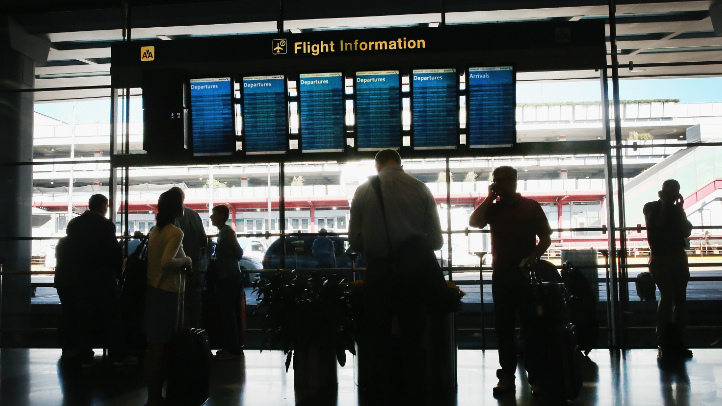Chicago's United Center will become a mass COVID-19 vaccination site opening in March. Why was the arena chosen as one of less than 20 locations across the U.S. as part of a new federal partnership pilot program? Officials say it was selected for several reasons.
The United Center will open as a vaccination site on March 10 through a partnership of Chicago and Illinois authorities with the Federal Emergency Management Agency, a coalition of officials announced Friday.
It will be able to administer 6,000 shots per day at full capacity, officials said, but noting that demand was "anticipated to be high." Those doses will be provided directly from the federal government and not diverted from the supply sent to Chicago or Illinois.
Officials said the United Center vaccination site will operate seven days a week for eight weeks by appointment only, and that information about where and how to make appointments would be made available in coming days.
Feeling out of the loop? We'll catch you up on the Chicago news you need to know. Sign up for the weekly Chicago Catch-Up newsletter here.
The United Center is one of 18 "federally-established community vaccination centers" across the country that President Joe Biden's administration highlighted Friday as either recently opened or opening in the coming weeks. Those 18 sites will be able to administer a total of 61,000 shots per day at full capacity, the White House said in a statement announcing the new locations..
Those sites, including the United Center, were selected based on a range of criteria including the Center for Disease Control and Prevention's "Social Vulnerability Index."
That index helps officials "identify and map communities that will most likely need support before, during, and after a hazardous event" taking into consideration "critical data points, including socioeconomic status, household composition, minority status, languages, housing type and transportation," the White House said.
News
Chicago and Cook County were identified as having a "significantly medically underserved and marginalized population," the White House said, adding that the United Center is located in a "central and accessible" area with nearby public transit and high walkability.
"The site will serve up to 2.9 million people who live within a 30-minute drive time," the White House said, noting that 22,000 people live within a one-mile walking distance of the arena.
"The United Center is one of the best locations for vaccinating large numbers of people in America: it’s easy to get to, is in the midst of a medically underserved community, can handle large crowds and is well known to everyone in Illinois,” Gov. J.B. Pritzker said in a statement.
“I am deeply grateful to the Biden-Harris administration for working closely with us to bring on this high-capacity site, and I’m particularly proud that we’ve worked together to prioritize seniors in this process, moving us that much closer to putting this pandemic to an end," he continued.
The announcement about the United Center came one day after Illinois expanded Phase 1B of its vaccination plan, opening up eligibility to include people with certain high-risk medical conditions and comorbidities, as well as the residents age 65 and over as well as essential workers who already previously qualified.
While the state expanded its Phase 1B, many counties, health departments and hospital systems - including Chicago and Cook County - said they would not join the rest of Illinois in increasing eligibility, citing low vaccine supply for those who already qualify.
While frustration has been evident - both among residents seeking their shots as well as many government and health officials - over low vaccine supply, the shipments have increased in recent days after being stymied by winter weather last week.
On Thursday, Illinois reported a single-day high of vaccinations across the state, with more than 130,000 doses administered in the previous 24 hours. Nearly 2.7 million doses of the two available vaccines have been delivered to providers in Illinois, with another 445,200 doses allocated to the federal government's program for long-term care facilities. Of those, more than 2.4 million doses have been administered statewide.



